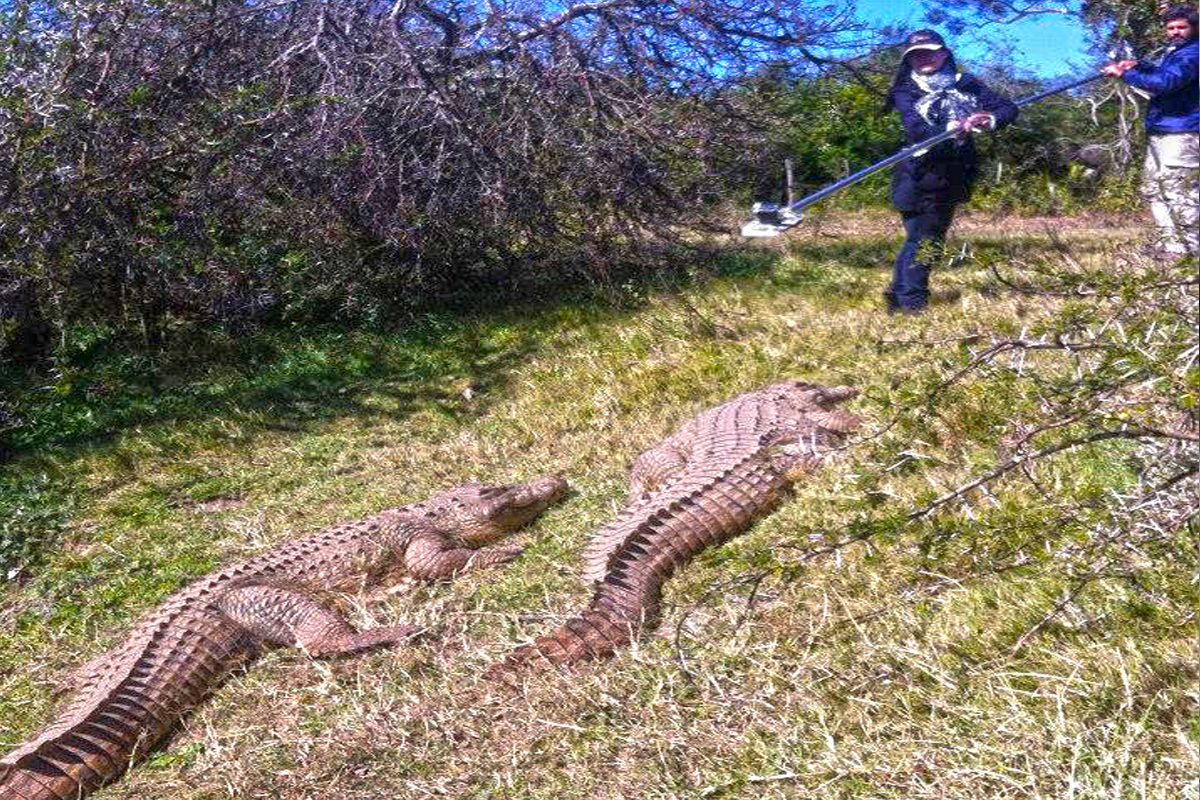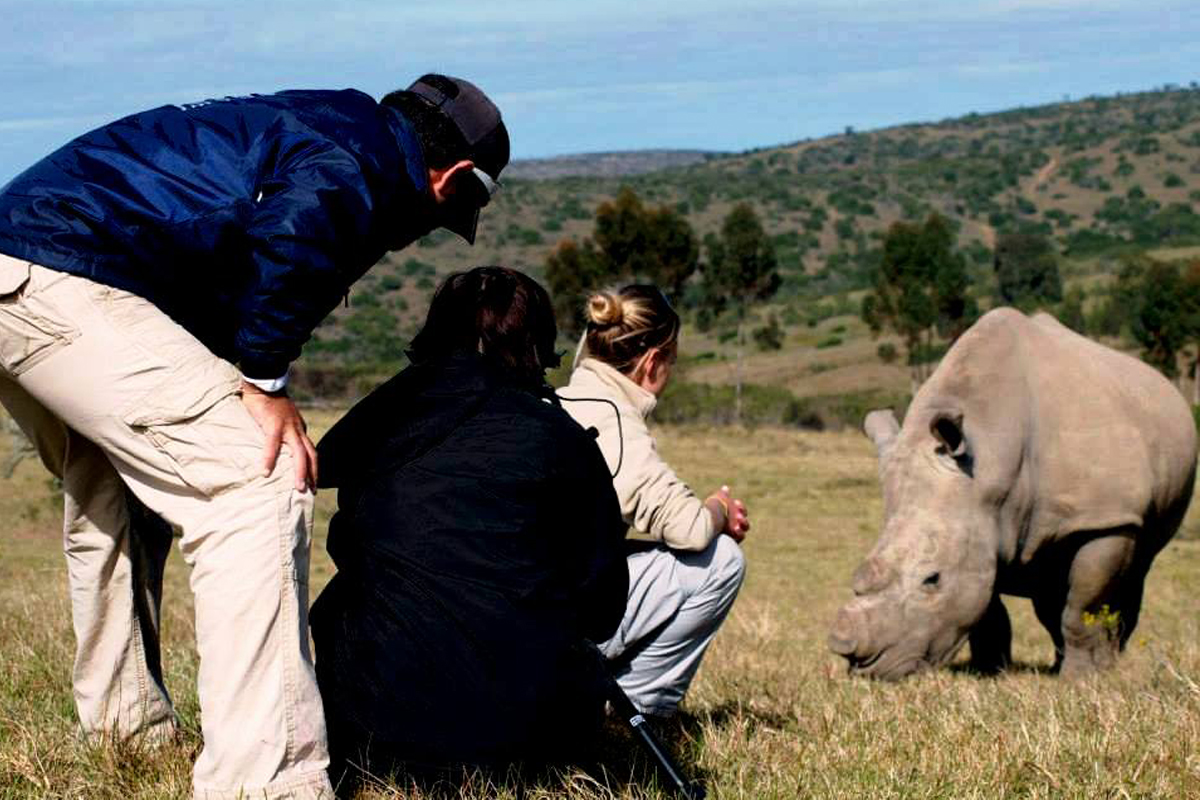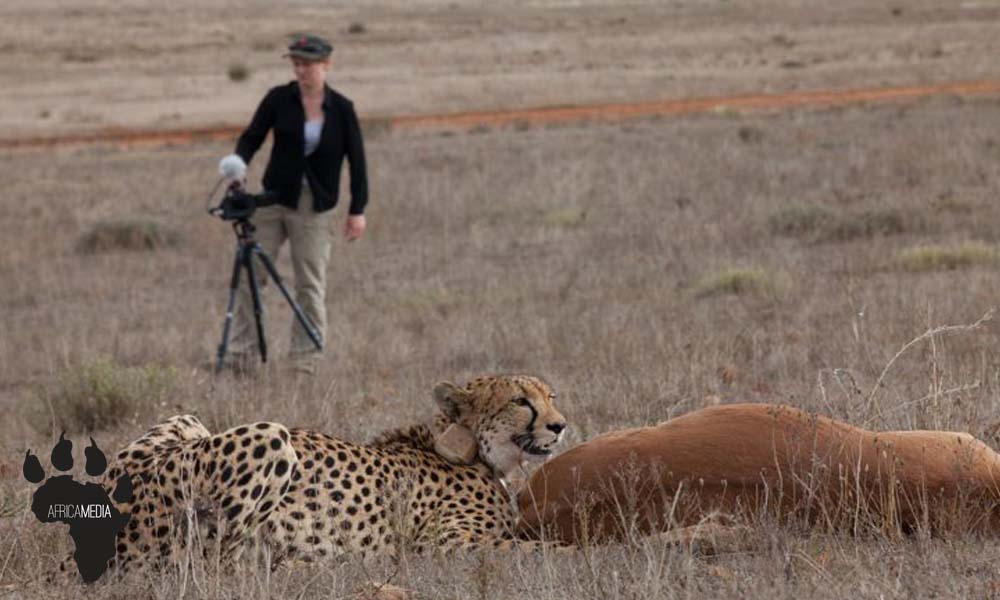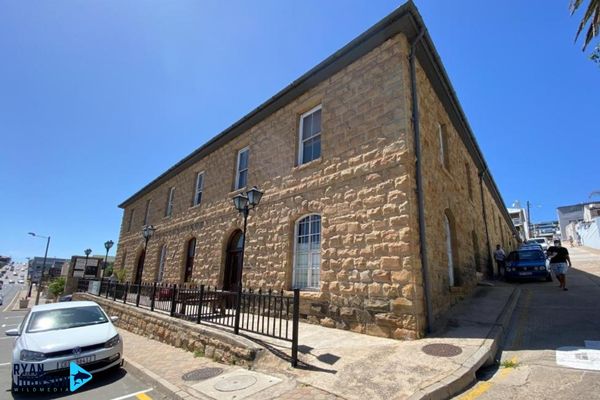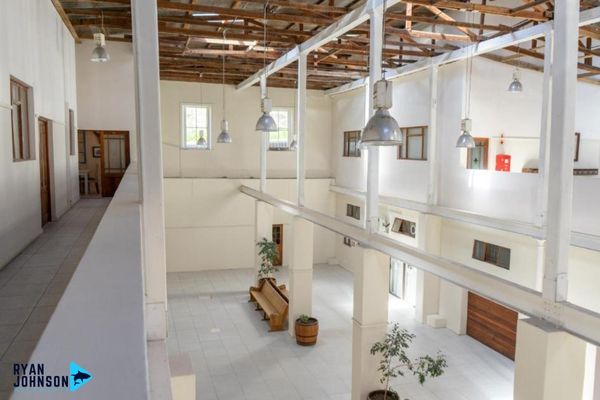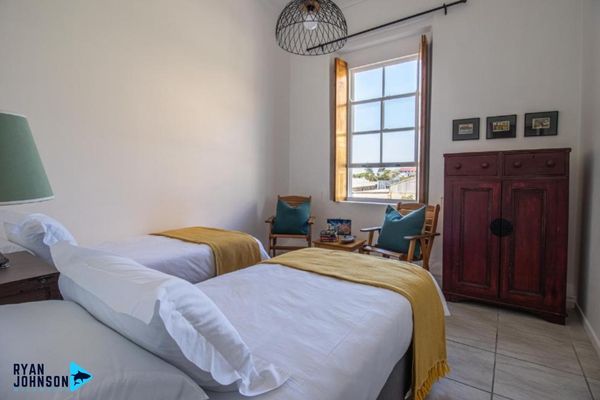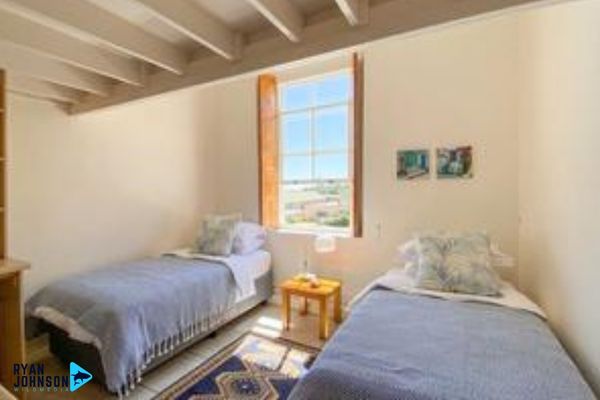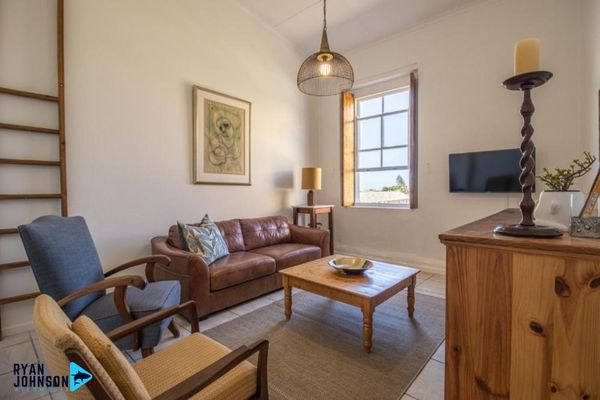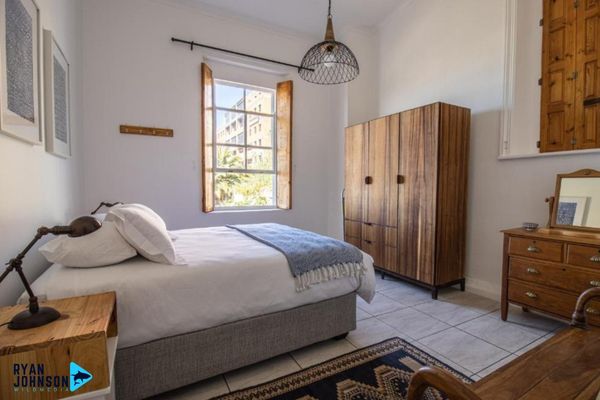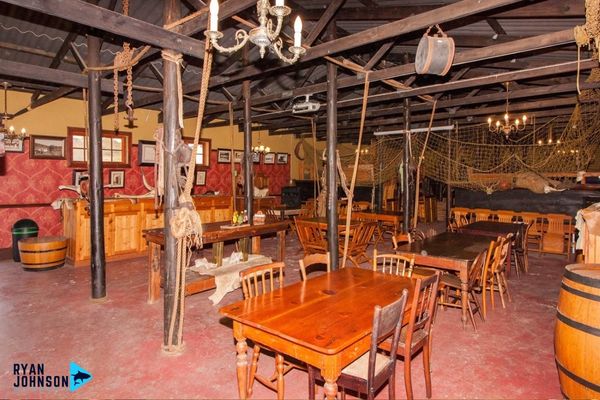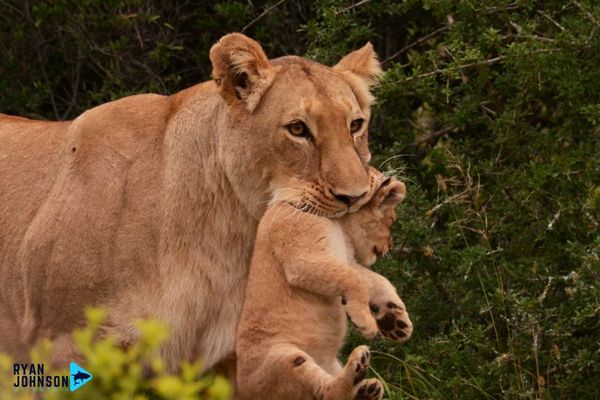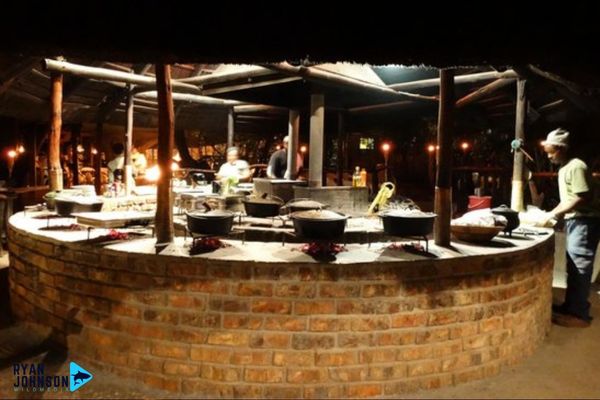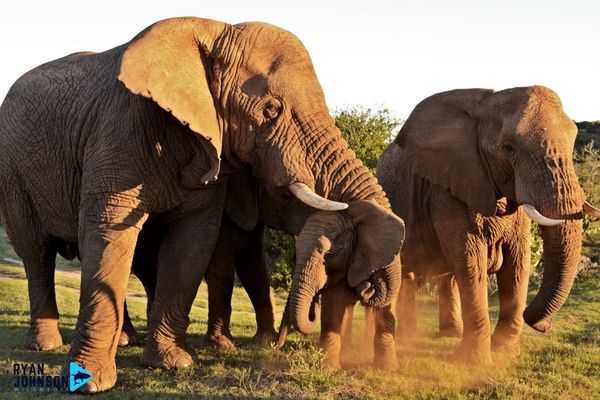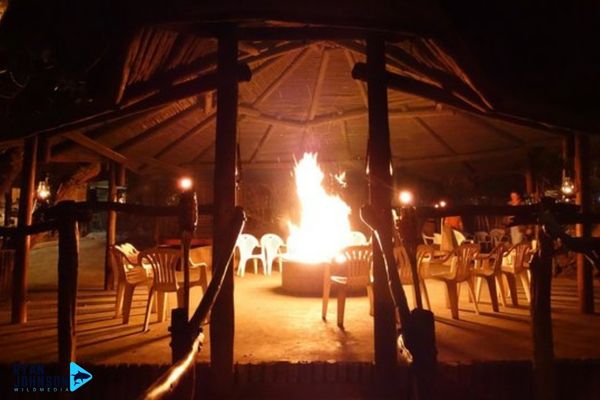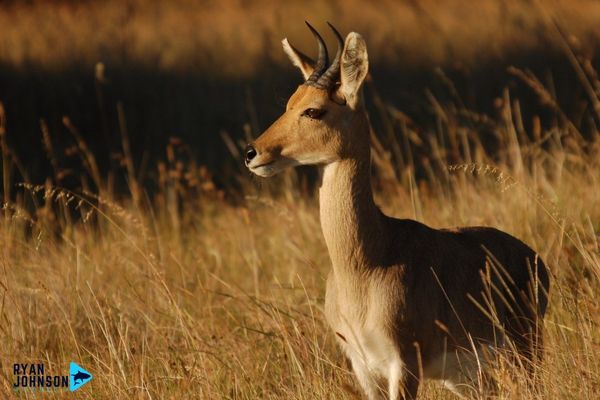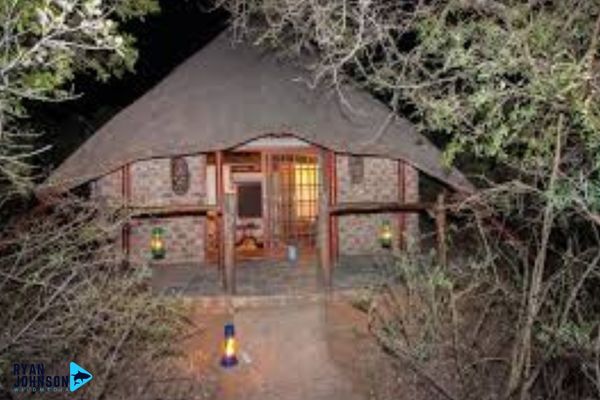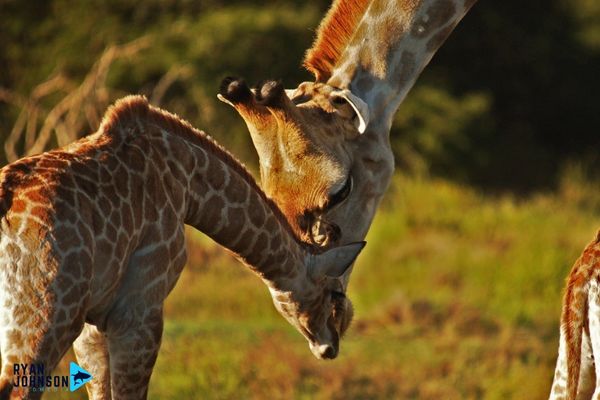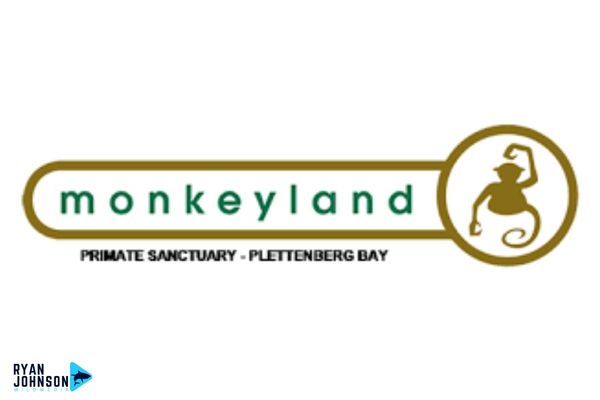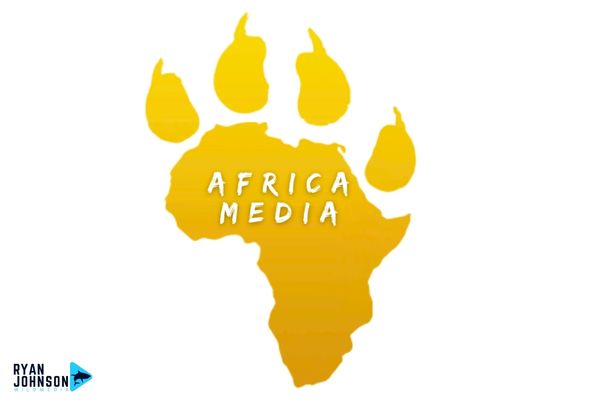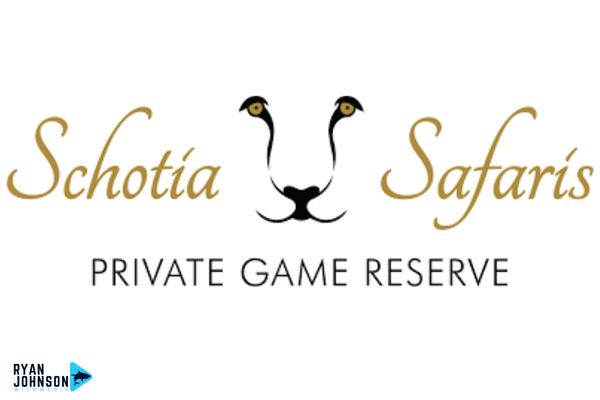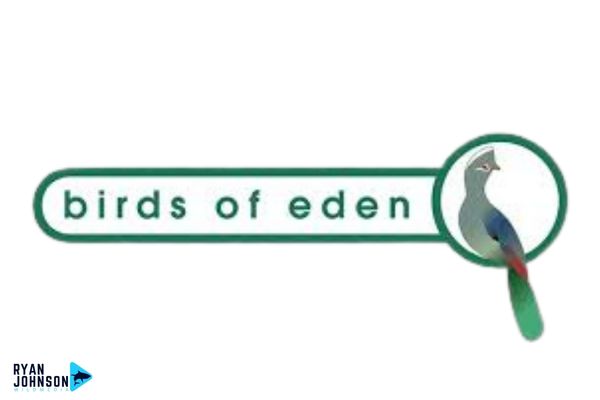Ready to book your place? - Select your preferred month
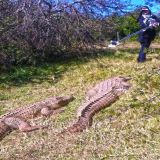
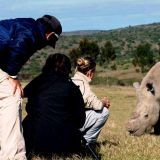
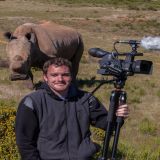
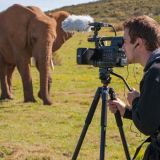
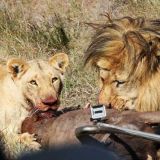
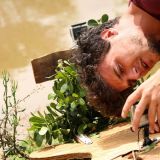
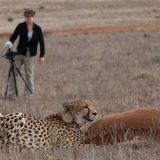
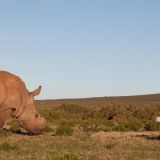
Wildlife Filmmaking Course
I created this 28-day wildlife filmmaking course back in 2014 with a clear goal: to offer aspiring filmmakers a truly practical, real-world experience in one of the wildest places on Earth. After spending decades filming wildlife documentaries, I saw a gap—too many people entering the industry without the field skills needed to succeed. This program is built around what actually matters in the field: understanding animal behavior, working safely around unpredictable and sometimes dangerous wildlife, and using professional-level filming equipment in challenging, often unforgiving environments. While I designed, shaped and initially taught the program, the day-to-day training is now led by my handpicked team of experienced wildlife media specialists. They’re not just instructors—they’re working professionals who live and breathe this craft. You’ll learn directly from people who know exactly what it takes to film wildlife at a broadcast standard. If this sounds like the kind of training you’re after, get in touch—I personally handle all inquiries and would be happy to chat about whether the program’s the right fit for you.
At the heart of this 28-day internship is one powerful goal: to give you the skills, confidence, and portfolio piece you need to take your first step into the world of professional wildlife filmmaking.
Over four weeks, you’ll be guided through every stage of the wildlife documentary process—from understanding the principles of storytelling and shot composition, to mastering professional gear, filming in the wild, and editing your broadcast-quality film.
The highlight of the program is an 8-day immersive filming expedition on Schotia Private Game Reserve, one of South Africa’s oldest and most wildlife-rich reserves. Living in the heart of the bush, you’ll wake each morning to the sounds of the savanna and fall asleep to the distant roars of lions. Evenings are spent around the fire, sharing stories, reviewing footage, and preparing for the next day’s shoot.
As a filmmaking team, you’ll be assigned your own private Land Rovers, giving you exclusive access to the reserve’s terrain, allowing for maximum flexibility and creativity during your field shoots. With expert trackers and field support, you’ll focus on filming iconic species including elephants, white and black rhinos, lions, giraffes, zebras, and an abundance of antelope, birdlife, and other fauna that thrive in this diverse ecosystem.
Throughout your time in the field, you’ll be gathering footage for your personal project: a fully produced, five-minute wildlife documentary. You’ll plan your story, capture original footage, and work through post-production—editing, crafting a narrative, and finalising your film for professional use. The result is a complete showcase piece that reflects your technical skill and your creative vision and voice as a wildlife storyteller.
Whether you’re preparing for film school, looking to expand your career into wildlife media, or simply pursuing a dream of telling stories from the wild, this internship is built to give you the tools, experience, and support to make it happen.
Overview
This intensive four-week program immerses participants in the full cycle of wildlife documentary production—from concept development through to filming, editing, and final screening. The course is taught by professional wildlife filmmakers and provides access to broadcast-quality equipment and real-world filming environments in South Africa.
Pre-production: Foundations & Pre-Production
Objectives:
-
Develop technical competency with camera, audio, and drone equipment
-
Learn documentary storytelling and planning techniques
-
Scout and practice in controlled environments
Modules:
-
Introduction to Wildlife Filmmaking: Ethics, Style & Structure
-
Camera Operation: Panasonic P2, framing, focus, exposure, ND filters
-
Audio Recording: Shotgun & wireless mics, field sound collection
-
Drone Use: Basic flight skills, aerial filming strategies
-
Wildlife Behaviour & Filming Techniques
-
Expedition Filming Practice at:
-
Monkeyland Primate Sanctuary
-
Birds of Eden Aviary
-
-
Scripting and Storyboarding Your Documentary
-
Planning Shoots for the Game Reserve: Logistics, Timing, Story Arcs
Production: Field Filming on Schotia Game Reserve
Objectives:
-
Capture high-quality wildlife footage in natural environments
-
Apply production planning to real-time field conditions
-
Begin building your individual wildlife documentary
Daily Activities:
-
Sunrise and sunset game drives for golden-hour footage
-
Scene-building, character development, and narrative capture
-
Field audio recording and environmental soundscapes
-
Interviews (if applicable) and voiceover planning
-
Daily rush review sessions with mentors for feedback and improvement
Focus Wildlife:
Big 5 species, grazers, predators, birdlife, landscapes, and ecological interactions
Post production: Post-Production & Editing
Objectives:
-
Craft and complete your personal wildlife documentary
-
Learn professional editing techniques: pacing, sound design, and colour grading
-
Finalise and present your film
Modules & Sessions:
-
Introduction to Adobe Premiere Pro
-
Footage Logging & Media Management
-
Editing Narrative Structure
-
Colour Correction & Grading
-
Audio Clean-up & Ambient Mixing
-
Voiceover Integration & Music Licensing
-
Titles, Lower Thirds, and Final Exporting
Final Evening: Film Premiere & Feedback
-
Screening of all participant documentaries
-
Group discussion and constructive critique
-
Certificate of completion and a digital copy of your film
For your accommodation in Mossel Bay, I have arranged a comfortable and centrally located stay at the historic Searle’s Manor—ideal for participants on the wildlife filmmaking course.
Each apartment features two cozy bedrooms and a fully equipped self-catering kitchen, giving you the flexibility and comfort of home. You’ll be just minutes away on foot from the beach, cafés, restaurants, and shops, making this one of the most convenient options for accommodation in Mossel Bay.
Right outside your apartment is our newly renovated studio space, designed to support your learning journey with plenty of room to work, train, edit and collaborate on your pre-production and post-production phases of making your documentary. There’s also an on-site cafeteria serving fresh coffee, snacks, and refreshments daily. Everything you need for a productive and enjoyable stay is right here.
For eight unforgettable days, you’ll live in the heart of Schotia Private Game Reserve, surrounded by the wildlife you’ll be filming. This is no ordinary accommodation—it’s a true bushcamp experience designed to fully immerse you in the natural world.
Students stay in shared rustic lodges or safari-style tents nestled within the reserve. It’s not uncommon to wake to the sound of elephants trumpeting in the distance or to fall asleep to the roar of nearby lions. This is a living, breathing wildlife environment—raw, real, and inspiring.
All meals are shared in the reserve’s communal boma—an open-air space where the team gathers each morning and evening around the fire. It’s where plans are made, stories are swapped, and the sense of community grows stronger with each day.
At the center of the filmmaking operation is the reserve’s character-filled saloon, converted into a working production base. Here, cameras are charged, content is backed up and catalogued, and production gear is safely stored. It’s the logistical hub that keeps the filmmaking process moving smoothly while you focus on capturing the story out in the field.
Living and working in the bush in this way allows you to fully absorb the rhythm of the wild—an essential part of becoming a wildlife filmmaker.
ere.
To offer this course, I have partnered with various wildlife and media organisations in South Africa. Specifically, mentoring and training are offered with Africa Media, the company I founded in 2014. In addition, we access incredible wildlife via our long-established partnerships with Monkeyland, Birds of Eden and the famous Schotia Private Game Reserve.
Accommodation & Meals
-
Comfortable accommodation (single or dorm) for the full duration of the program
-
Three meals per day are prepared on site
Expert Training & Filming Experience
-
Daily tuition and mentorship from experienced wildlife filmmakers
-
8 full days of immersive filming and living on Schotia game reserve
- Day expedition to Monkelyland and Birds of Eden
-
Personal feedback and practical skills development
Professional Filmmaking Equipment
-
Use of broadcast-quality HD video cameras (Panasonic P2)
-
Access to professional audio gear (shotgun mics, wireless systems, recorders)
-
Use of a professional drone for aerial filming sessions
Excursions & Locations
-
Guided filming expeditions to Monkeyland and Birds of Eden
-
On-site location scouting and story development assistance
Transport & Connectivity
-
Ground transport to and from George Airport (on official arrival and departure days)
-
Internet access during the program
Travel
-
International and domestic flights to South Africa
-
Any visa or travel documentation fees required for entry
Additional Services
-
Laundry service during the program
-
Any tourism excursions not included in the official itinerary
-
Personal snacks, extra beverages, or special dietary items
-
Tips for game rangers and reserve staff (optional but appreciated)
Optional Add-Ons
-
Any additional short courses or training modules you choose to take outside the core program
Early Arrival or Late Departure
-
If you arrive before the 1st or leave after the 28th of the month, an additional USD 50/day will be charged to cover meals and accommodation
No, on this courseyou are entitled to enter South Africa on a temporary visitors permit (e.g. tourism permit). Tourist visiting visas are usually issued for three months/90 days upon entry into South Africa. However, we do recommend that you contact the South African Embassy or Consulate in your country and confirm this fact. If you plan to travel in South Africa prior to or after the course for a period extending 90 days, you will have to apply for a Volunteer VISA application through your home embassy.
Quickly evaluate the visa status of your country when visiting South Africa here
No, you don’t need to bring your own camera. The course provides access to a full range of professional broadcast equipment, including video cameras, audio gear, drones, and editing facilities. That said, many students do choose to bring their own cameras—especially DSLR or mirrorless models—which can produce outstanding footage and give you extra flexibility to shoot during free time or in your preferred style.
Cameras Available
-
8 × Panasonic HVX-200P series P2 video cameras
-
2 × Sony NEX100 video cameras
-
1 x Sony A7S mkii camera
- 5 × GoPro cameras (used for effects and secondary angles)
- 2 × DJI drones
Audio Equipment
-
8 × RODE shotgun microphones (boom or camera-mounted)
-
2 × Lavallière radio mic systems (Sennheiser and Sony)
-
1 × Tascam digital audio recorder
-
1 × RODE DSLR-mounted shotgun microphone
Accessories
-
8 × Video camera tripods
-
8 × Video ‘throw bags’ (for mobile shooting)
-
1 × Video camera crane
-
3 × Reflectors
-
1 × Radio-controlled ‘cub cam’ filming vehicle
-
1 × Camera slider (for smooth tracking shots)
This is a set course that runs for 28 days. Each intake starts on the 1st of the month, and departure is on the 28th.
The course is aimed at assisting in the development of aspiring wildlife film-makers. Students on the course will spend a month designing, writing, filming and editing their own five-minute wildlife documentary situated on one of Africa’s most beautiful and well-stocked game reserves. At the end of the course, students will present their film to students and staff and walk away with a showpiece that can be used to help break into the demanding wildlife filmmaking industry.
You are the exclusive owner of all video and photographic media that you collect during this course. I do reserve the right to utilise media for course marketing purposes only.
If you are getting ready to pack, here is a rough packing list of items you should consider bringing.
Clothing
- Work clothes. Bring what you are comfortable in, but ensure that you have warm, strong work clothing of neutral colours, solid work shoes such as hiking boots or trainers, a good sun hat with a wide brim and a warm hat/beanie. Gloves can be helpful for early mornings. Bring a tracksuit or something similar to lounge around in during the evenings, which can get cold. Also, face buffs help keep off the cold in the evenings.
- Social clothes. Mossel Bay is a small town, so social clothing should reflect a casual, non-formal style.
- A swimming costume.
Video and electronic gear
You are more than welcome to bring any personal videography or photographic equipment, however, this is totally optional.
Miscellaneous
- Covid negative test results
- Toiletries & strong sunscreen (there are also plenty of shops to purchase from).
- Prescription medication.
- Passport & photocopy of passport.
- Bank cards (inform your bank of your travels).
- Spare cash.
- Phone & cables.
- Accommodation address – 182 Aalwyn Way, Aalwyndal, Mossel Bay.
When you are accepted into this course, you will have to sign liability, copyright documents, as well as an agreement that you are knowingly partaking in potentially dangerous activities. You will not be covered for accidents, breakages, theft or illnesses, so please do organise your own medical and travel insurance. The chances that you will be injured are very slim if you follow the safety guidelines and do not try anything foolish that we would not approve of. However, you will be working in an authentic wildlife reserve, which can result in accidents. So it is important to be covered in case of an emergency or accident. Be sure to have insurance coverage for your entire stay in South Africa.
The course starts and ends at Mossel Bay, South Africa. Participants must travel to either George airport or the Mossel Bay bus depot. Shuttles from these locations will transport you to Searle’s Manor in Mossel Bay.
When you arrive—either at George Airport or the Mossel Bay bus terminal, one of my team will be there to personally meet you and make sure your journey to the Wildlife Filmmaking base is smooth and welcoming. Before you depart for South Africa, we will confirm your travel details and coordinate your pickup time (on the 1st). We’ll also set up a WhatsApp group so you can stay in touch during your travels, get help if anything changes en route, and ask any last-minute questions.
From the moment you arrive, you’ll be part of the team—and we’ll get you settled in and ready to start your adventure.
A lot of students enjoy extra trips and tourism activities when time permits. We recommend you have around USD1000 extra per month if you wish to go on these. Please note you do not have to go on ANY of these extra trips. This is simply for your information, should you wish to.
South Africa is far from Malaria areas, and there are no strange African diseases which you could pick up (that is if you respect the same safety rules as anywhere else in the world).
Please ensure that you bring any medication required. If you will require medication whist in South Africa, please contact us to ensure that it is available.




